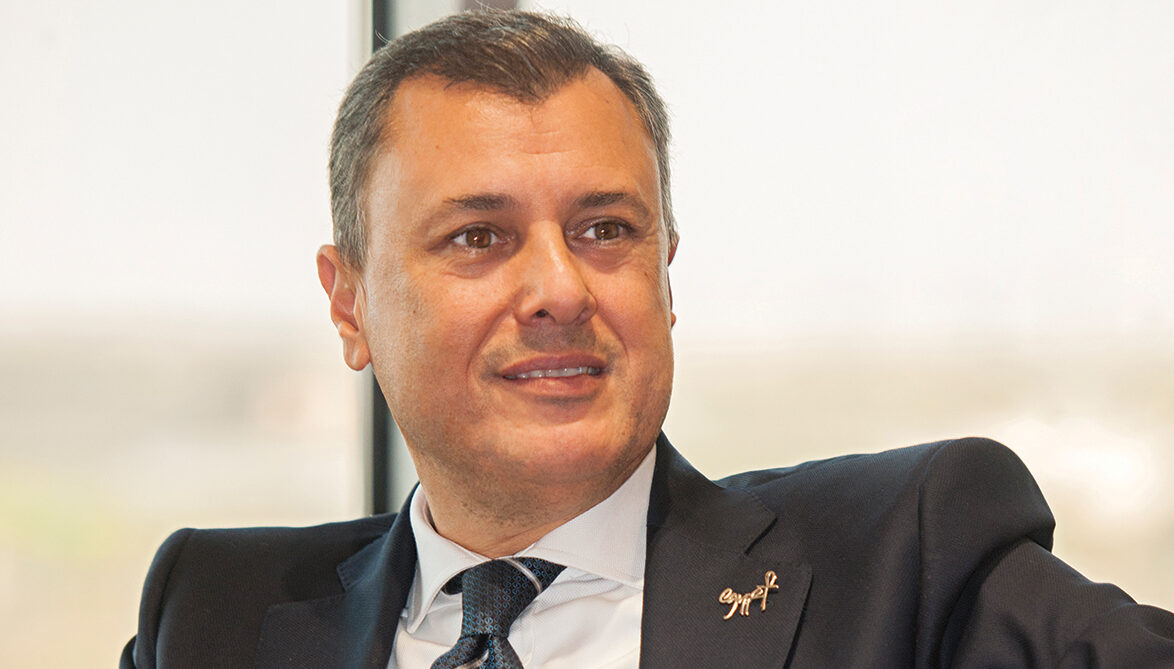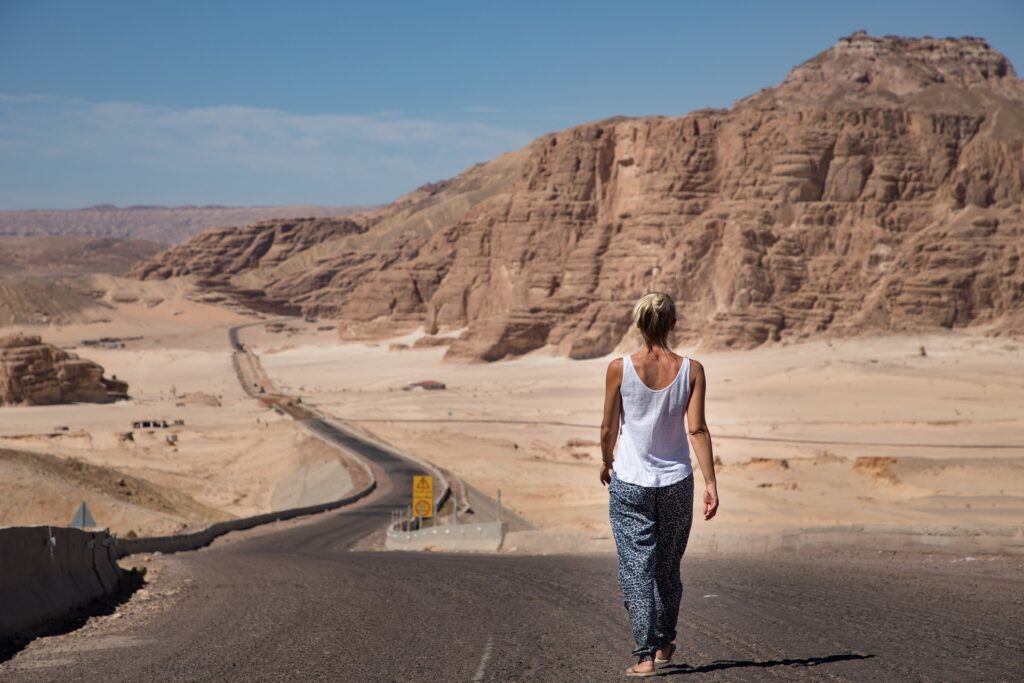With a career spanning over 30 years in banking and finance, Ahmed Issa, the former CEO of retail banking at CIB, Egypt’s largest listed bank, has a proven track record of being a “natural-born” builder.
In 1998, he was one of the three founders of CIBC, later called CI Capital, which grew to be one of Egypt’s top brokerages. “That is when I realized my interest is in building new things,” Issa says. “The bank identified me as a potential leader [of new projects]. As such, they put me on track to either lead or be part of the leadership team of new activities projects.”
With such a background, few would guess he would be appointed as the Minister of Tourism and Antiquities. For Issa, the call from Prime Minister Mostafa Madbouly in August 2022 telling him he was nominated for the position “felt like a culmination of my 30-year career in managing change and [as] a problem solver.”
One of the critical advantages of having someone from outside the sector lead it is that he comes with pragmatic views and fresh perspectives to increase Egypt’s tourist arrivals and revenues from that vital sector.
The replies to the questions were edited for length and clarity.
How did you feel when you got the call informing you of the nomination for the Minister of Tourism and Antiquities position?
The prevailing feelings were of extreme pride and excitement. I met the Prime Minister on a Sunday evening, where he informed me of the nomination and asked me a few questions about my plans to improve the sector.
The holistic challenge was to determine who in the tourism sector deserves to receive the nation’s savings and how I can lead the industry to the “next level.” As someone who has given loans to tourism companies throughout my career, I know a lot about how the sector operates. Nevertheless, it took all my experience to set a plan, as I am now in charge of the regulating authority.
Another challenge was to ensure the Ministry’s strategies and policies cement its role as a regulator to serve better the tourism ecosystem, which comprises over 8,000 tourism companies, marine and diving centers, bazaars, restaurants, and civil society organizations that represent the industry vis-a-vis the regulator and policymaker.
What is your strategy to grow Egypt’s tourism sector?
As a problem solver, I had to quickly identify why the tourism sector has yet to realize its potential. I firmly believe that the Egyptian tourism industry deserves so much more.
On the upside, Egypt is spending a lot on improving infrastructure and quality. The country now can receive millions more tourists. Some of those developments are building a sustainable transport network [high-speed train and monorail] to ensure a magnificent experience for those seeking ‘sun-and-sea’ and Egypt’s unparalleled cultural and historical experiences.
The other positive is that Egypt is a very safe country compared to most other popular tourist destinations.
That meant our strategy was straightforward. There is plenty of demand, as there are hundreds of millions of travelers worldwide each year. The fundamental issue Egypt faces is that supply is limited. There are three components to that limitation: plane seats, accommodation rooms, and the tourist experience. We plan to have over 100,000 accommodation rooms on the Red Sea and build the infrastructure to make it accessible for tourists.
Accordingly, my first task was to ensure supply growth and to deliver our product. Those two factors come from more effective promotion and marketing of Egypt as a top-tier and diverse destination for foreign visitors. The other factor is to have a presence in foreign countries to interact with travelers who have Egypt on their shortlist of destinations.
Our marketing activities focus on families, adventure, beach, and culture. These products are extremely popular across a handful of countries. Our focus is on identifying where Egypt has the most competitive advantage and targeting potential travelers in those nations with suitable promotional and marketing activities.
How are you compensating for the loss of Russian and Ukrainian visitors? (In 2019, they were the top two nationalities visiting Egypt.)
We developed a strategy in response to the Russia and Ukraine conflict to maximize the number of tourists still willing to travel. We also designed and implemented strategies to diversify the nationalities of visitors to replace lost demand quickly.
Since the conflict started, the number of Russian tourists has been recovering, but not to the previous average levels.
Meanwhile, we saw more tourists from Germany, the U.S., Italy, France, Spain, the Czech Republic, Poland, Saudi Arabia, India, and China. The growth rates from those countries were equal to 2019 and 2022.
For various reasons, Egypt has gained market share from other destinations, including Latin America and Asia. Meanwhile, European travelers are finding Egypt a more attractive destination than ever, as they now seek destinations that offer better value for money.
Demand has been growing so fast that tour agencies have increased prices. We have seen prices to visit Egypt rise between 20% and 50%.
How are you digitizing the tourism sector?
One of the main benefits of digitization is that it improves the tourist experience, which is one of the main issues we have always faced.
We started by offering tourists the option to book tickets to museums and other destinations on our website using a bank card. Meanwhile, local tour agencies can buy in bulk for their customers with a 5% discount.
That has had a tremendous impact. Last year, 90% of the Supreme Council of Antiquities’ ticket sales revenues were cash. This year, that percentage declined to 3%. Meanwhile, pre-booking online means tourists will not need to stand in line at any site or museum to get tickets.
However, we need to continue digitizing and automating our services to ensure we take those services to the next level and the one above. We are never satisfied and are always looking for better ways to improve.
What are the biggest challenges facing tourism in Egypt? And how are you solving them?
The two main fundamental limitations are plane seats and accommodation rooms. For the former, we have an effective incentive plan to grow plane seats yearly for all carriers coming to Egypt.
Of course, each tour agency has its own problems, but those two are overarching challenges that will open Egypt’s tourism market to new heights.
However, as regulators, we are always looking to do better. We have to automate and digitize our services to industry players. We also have to expedite our license-issuing process to hotels and other establishments. We have to monitor the overall performance of the businesses we regulate and take their performance to the next level.
Accordingly, we have enacted several programs and initiatives. First, we contracted the private sector to manage facilities for visitors and services in several museums and archaeological sites. That is a critical initiative that we will continue to expand.
We are also using the higher income from raising ticket prices to double our spending on restoring and maintaining monuments and archaeological sites to preserve them for the next generation. We are also doubling our capital expenditure budget for museums and other archaeological sites to improve their tourist experience.
On the tourism side, we are expediting the process of allocating land to private-sector tourism companies. Meanwhile, The Sovereign Fund of Egypt is working closely with the Egyptian Tourism Federation and other industry associations to coordinate the re-purposing of abandoned government buildings in Downtown Cairo to become a historical tourist destination or hotel.
Some facilities that ministries have vacated to relocate to the new capital are classified as historical palaces per Egyptian laws. Some would be repurposed to become among the region’s most luxurious and exclusive hotels.
Are you introducing any legislative reforms?
The President recently ratified a new law that allows tourism companies to self-regulate via the federation and tourism chambers in tandem with the ministry’s regulatory framework. Those industry bodies know their industry the best, and, as a regulator, we must support them.
Accordingly, the law will put unprecedented powers in the hands of associations representing tourism companies to reform the investment climate and truly put the private sector in a leadership position to grow the industry without violating the Ministry’s laws and regulations.
One example is that the Ministry of Tourism and Antiquities will only give a license to a company if they are members of the Egyptian Tourism Federation. That way, we would ensure that industry players comply with the federation’s standards and regulations.
That [delegation of responsibility] means the Ministry could focus on developing and growing the tourism sector rather than auditing new players and solving individual problems.







